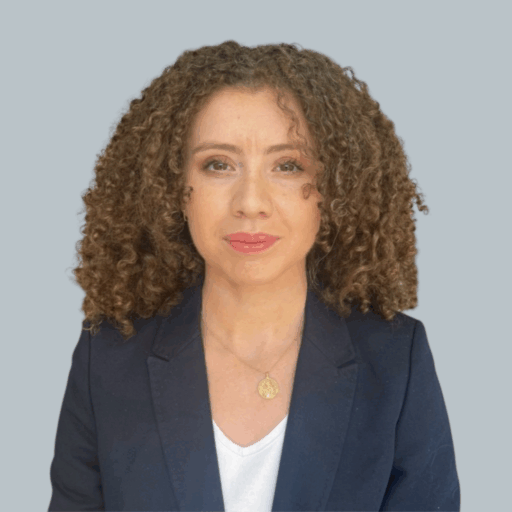

Cerys Stansfield
Public Sector
The annual meeting of the ITU Council took place in Geneva from 4-14 June 2024. This year, the Council took place as one of a series of events, preceded by the WSIS+20 High-Level Forum and the AI for Good Global Summit and followed by the Broadband Commission Spring Meeting. In other words, it has been a busy period for the ITU.
The Council acts as the Union’s governing body between plenipotentiary conferences, which are held every four years (the next is in Doha, Qatar, in 2026). The Council manages the Union’s day-to-day activities, as well as its policies and strategies in response to the rapidly evolving telecommunications and ICT market.
This year’s Council was also historic, marking the first time in 71 years that it was addressed by the UN Secretary-General. This reflects the ITU’s intention to become more involved in broader UN processes and establish a closer link between the UN-led work in Geneva and New York.
In her State of the Union address, the ITU Secretary-General, Ms. Doreen Bogdan-Martin, highlighted the Union’s challenges and achievements over the past year and directed the Council towards her vision for the ITU going forward. On top of her agenda are key issues, such as:
Following 10 days of discussion, the central debates and achievements of Council 2024 can be summarised as follows:
H.E. Antonio Guterres addresses key issues: Global Digital Divide and AI Governance
The UN Secretary-General, Mr. Antonio Guterres, spoke to the Council on two key issues: bridging the global digital divide and the development of AI governance and regulation. Mr. Guterres praised the ITU’s ongoing efforts in striving for global connectivity and its commitment to sustainability.
Looking ahead to the Summit of the Future, he welcomed the creation of an International Scientific Panel on AI, which is proposed as part of the Global Digital Compact (GDC), reiterating the need for global cooperation and dialogue on AI – between public and private entities, and between Geneva and New York.
Council agrees on the ITU’s role in the implementation of the WSIS outcomes and the 2030 Agenda for Sustainable Development
The Council agreed that the ITU should do the following:
Council endorses engagement strategy addressing AI Governance
The Council highlighted the work of the ITU in facilitating global dialogue on AI governance and regulation, particularly through the ITU’s central role in the Roadmap for Digital Cooperation by being the convener of the AI for Good Global Summit. In addition to hosting the AI Summit, the inclusion of AI governance in the WSIS+20 review serves to amplify the voice of the ITU and position it as a key body to lead international efforts to govern artificial intelligence.
Nevertheless, the global debate on AI governance has become a crowded space with other UN bodies, such as UNESCO, the High-Level Advisory Body on AI (under UN Tech Envoy), and the GDC’s proposed International Scientific Panel on AI. Given its historical mandate, WSIS and its implementing agencies might lack the necessary technical expertise to govern emerging technologies, such as AI.
UN celebrates first Virtual Worlds Day
The first UN Virtual Worlds Day took place on 14 June. The event intends to champion the transformative power of virtual worlds and accelerate the progress of the UN Sustainable Development Goals. The most significant moment of the day was the launch of the Global Initiative on Virtual Worlds – Discovering the CitiVerse, announced by the ITU, the United Nations International Computing Centre, UNICC, and Dubai Digital.
Council adopts Green Digital Action for COP29
The Green Digital Action was adopted by the Council following the successful Green Digital Action campaign organised by the ITU and partners at COP28. As such, the ITU will participate in COP29 this November in Baku, Azerbaijan, and continue its advocacy on how to leverage space and digital for environmental sustainability. Council discussions centred on efforts by companies to reach net-zero emissions, including the use of science-based targets in long-term planning and the mobilisation of international technical standards as tools to guide the ICT sector and digital industries.
Resolution passed to rebuild the Telecom Infrastructure in Palestine
The Council adopted the Resolution for assistance and support to Palestine and, in the Gaza Strip in particular, to rebuild the telecommunications sector. The Resolution invites all Member States to support ITU efforts to rebuild Palestine’s telecommunication infrastructure and support technical capacity building, including providing the necessary support to build and activate 4G and 5G services in the Gaza Strip. This sensitive issue is expected to be a hot topic for future ITU conferences, including WTSA-24, WTDC-25, and PP-26.
Council agrees on WTPF-26 Theme
It was confirmed that the theme of the World Telecommunication/ICT Policy Forum (WTPF-26) would be “Accelerating an inclusive, sustainable, resilient, and innovative Digital Future”.
Palau set to join the ITU
The Council prepared for the Republic of Palau to join as the 194th Member State of the ITU.
Council sets further direction for the ITU Internal Oversight Charter
Based on the creation of the Oversight Unit (OU) endorsed by the ITU Council in 2023, the Oversight Charter sets forth the purpose, scope, definitions, independence, authority, responsibilities, and applicable standards of the three oversight functions of the Oversight Unit: internal audit, investigations, and evaluation.
The purpose of this Unit is to improve the organisation’s operations and enhance the integrity and reputation of the ITU. The Charter was emphasised by the ITU Secretary-General as key to the ITU’s transformation and shall be reviewed at least every five years and adopted by the Council.
The ITU Council’s 2024 session marked a period of significant activity and historic milestones. A standout moment was the UN Secretary-General’s address, reflecting the ITU’s growing integration with broader UN initiatives and processes. Key decisions included strategies for bridging the digital divide, advancing AI governance, and reinforcing the ITU’s role in achieving the 2030 Agenda for Sustainable Development.
If you are interested in understanding more about the ITU or other multilateral processes in the digital sector or need on-the-ground engagement support, please contact Anja Engen at [email protected].




